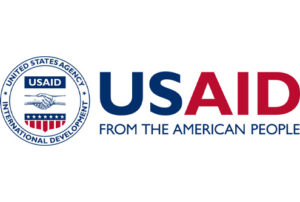In South Sudan, people displaced by disasters have set up their small businesses after participating in a pioneering new approach to localisation.
The six initiatives in Juba, the capital, include tailoring and repairs, food and drinks shops, clothmaking, and stalls selling fresh produce and agricultural seeds. Run by small groups of people displaced by recent floods, drought, and conflict, these enterprises now generate up to $10 per week.
The activities have been implemented by Root of Generations, a local NGO and GNDR member organisation based in the East African country, as part of our global Making Displacement Safer project. In response to the urgent need for locally-led disaster risk reduction efforts, our USAID-funded project develops innovative community solutions to improve lives and livelihoods in 11 countries.
The small businesses that have been developed in South Sudan were the result of a new approach to localisation. Using our Views from the Frontline methodology, Root of Generations surveyed displaced people and communities to identify and understand the different types of hazards, vulnerabilities, and threats that they face. “The results showed that many displaced people have sought refuge in Juba, but face dire conditions, including inadequate shelter, limited access to food, water, medical supplies, and education,” says Grace Dorong, Executive Director at Root of Generations. “Women and girls bear the brunt of these challenges.”
The next step was to bring all stakeholders together to discuss what sustainable local action could be taken to foster community participation to build resilience in urban areas. Following our pioneering Urban Living Labs process, Root of Generations brought together leaders from the host community, government, civil society organisations, and universities with displaced populations. The assembled group consisted of an equal gender balance among community leaders and took a gender equity approach to decision-making. Through a collaborative effort, they formulated a project to create sustainable business opportunities for people living in Gumbo, a settlement for internally displaced people. 25 individuals were selected including men, women, and persons with disabilities. A five-day training session was then delivered inside the camp, giving them new skills on how to run a small business and manage personal savings.
Following the success of the project, Dorong’s organisation is now urging national authorities and decision-makers to institutionalise localised approaches to disaster risks in national policies and planning. The NGO has run campaigns and appeared on local television. Women and men leaders actively participate in the advocacy work, providing real-time evidence and articulating community concerns. The initiatives aim to empower community members, foster resilience, and develop inclusive policies that prioritise the specific needs and risks faced by over two million displaced persons in South Sudan.

